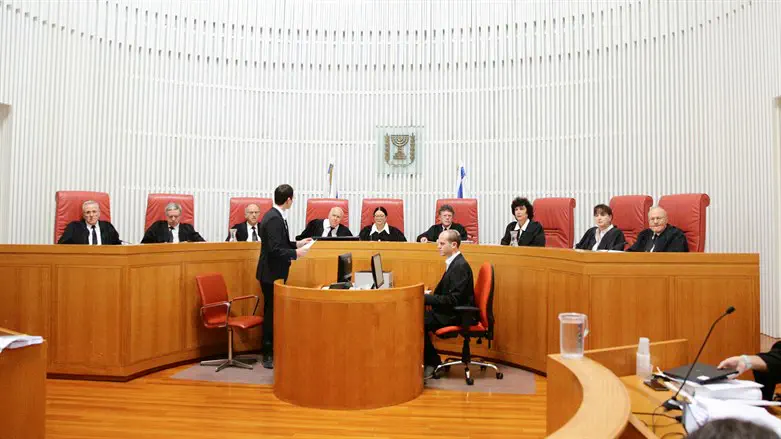
Professor Barak Medina, a member of the faculty of law of the Hebrew University of Jerusalem, on Tuesday morning estimated that Israel's Supreme Court will decide to accede to the petitions against the changes to Israel's reasonableness standard, and cancel the amendment entirely.
The changes amend Basic Law: The Judiciary and limit when the courts may use the reasonableness standard. Thus far, the Supreme Court has held Basic Laws above all else, stating that they form Israel's constitution and cannot be changed by the courts.
Prof. Medina, however, told 103 FM Radio, "My estimate is that the Supreme Court will decide to cancel the amendment to the reasonableness standard, but I do not think that this will cause a dramatic change in the relations between the authorities."
"As it is, the Prime Minister wishes to initiate a process to legislate this law a second time, in a different format. I don't think that all of the horrific scenarios that we are headed for a crisis or assassination are reasonable - maybe this will even be somewhat of a help for those parts of the coalition who have objections on this matter."
Israel has three branches of government. The executive branch is comprised of the prime minister and other ministers. The unicameral Knesset is the legislative power. Then there is the independent judiciary, which includes religious and secular courts and tribunals. However, Israel has no written constitution and operates pursuant to 11 Basic Laws. Thus, there is no explicit framework for the structure of government.
The idea of a reasonableness standard was introduced in 1980 by Aharon Barak, then a justice in Israel's Supreme Court. The Supreme Court decided cases based on how reasonable the action, government appointment, or legislation in question was. The legislation passed on July 24, 2023, does not allow the Supreme Court to use the reasonableness standard to strike down laws or appointments